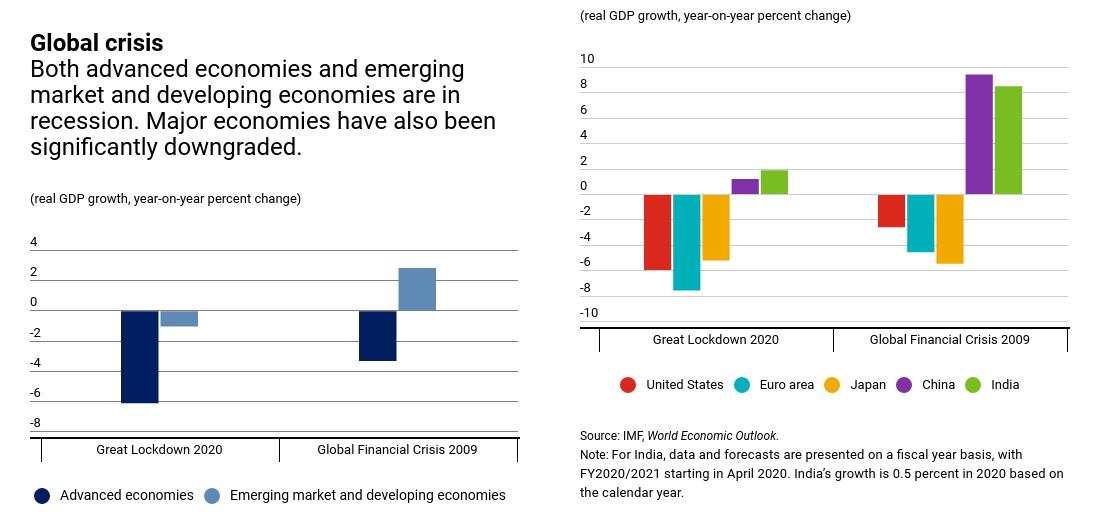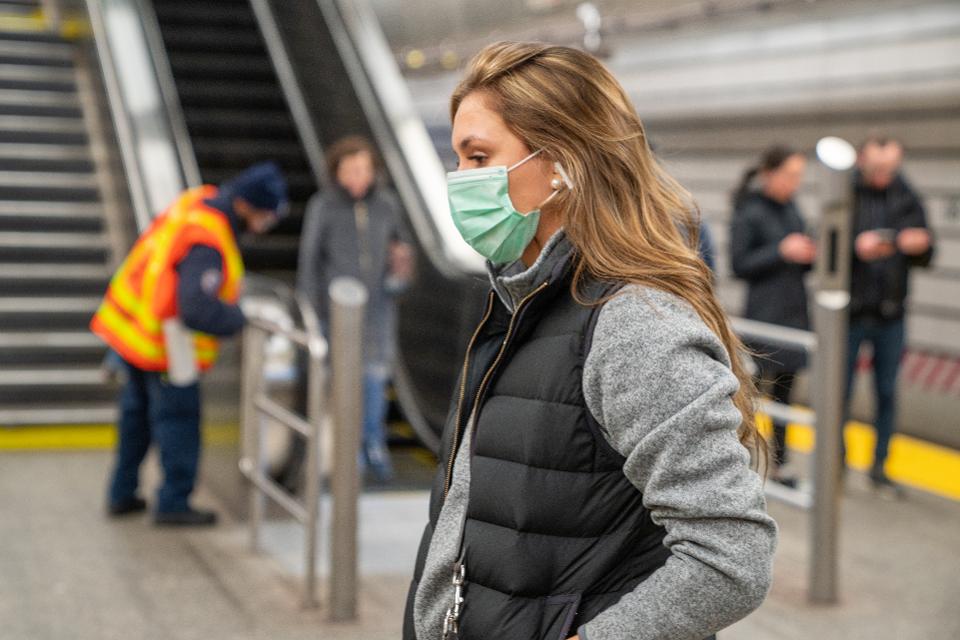Why 'Immunity Passports' For Recovered COVID-19 Patients To Return To Work Is A Bad Idea
As countries around the world face economic crisis due to the coronavirus pandemic, several politicians are warming up to the idea of 'immunity passports' for recovered COVID-19 patients assuming that they are now immune. There is no evidence yet that supports this belief.
The coronavirus pandemic has devasted the global economy
Amidst the varying degrees of cruel but necessary lockdowns and social distancing practices imposed by different countries around the world to contain the SARS-CoV-2, the virus that causes COVID-19, the International Monetary Fund (IMF) has described it as the "Great Lockdown".
In a report published on 14 April, IMF noted that the current crisis is the "worst economic downturn since the great depression" of the 1930s "and far worse than the global financial crisis" of 2007–08.
IMF also noted that while there are some "hopeful signs that this health crisis will end", there might be "more adverse scenarios" given the extreme uncertainty around the duration and intensity of the crisis.
"The pandemic may not recede in the second half of this year, leading to longer durations of containment, worsening financial conditions, and further breakdowns of global supply chains."
For their part, policymakers are looking for ways to reopen the society and let people go back to work in order to restart the economy
One of the proposals being studied by politicians and authorities around the world is something called 'immunity passports' for people who have recovered from COVID-19 and have antibodies.
This 'immunity passport' or 'risk-free certificate' would be given to such individuals to get them back into the workforce more quickly. The proposal, which is being considered by countries like Germany and Chile, is based on the assumption that these recovered COVID-19 patients are now protected against re-infection.
In fact, The Washington Post reported Chilean government officials saying that they are going ahead with plans to issue the world's first 'immunity passports' to allow people to return to work.
"Holders," the report said, "will be exempt from quarantines and other restrictions."
Similarly, politicians and authorities in other countries including the US, the UK, and France have expressed interest in the proposal as one of the possible reopening strategies amidst the pandemic.
While it sounds good, the idea is not only bad, it could also turn fatal.
A flight passenger is screened with a thermal imaging camera at the Arturo Merino Benitez International Airport in Santiago, Chile.
Image via AP photo via New York PostFirst, there is no evidence yet that supports this belief that the recovered COVID-19 patients are now immune.
On the contrary, data from South Korea and China shows that a growing number of individuals have tested positive after recovery.
On 16 April, Reuters reported that health officials in South Korea were investigating "a small but growing number of recovered coronavirus patients who later test positive for the virus again".
In March, a report by NPR noted that data from Wuhan in China show that about 5% to 10% of COVID-19 patients who were pronounced "recovered" have tested positive again.
While it's not clear exactly why some of the recovered patients have tested positive a second time, re-infection, a relapse, or inconsistent tests are among the main possibilities.
A study also showed that those who have recovered could still be infectious even after their symptoms have disappeared as the virus stayed as long as 37 days in patients' respiratory tracts after recovery.
The study, published in The Lancet, suggested that patients remain infectious long after symptoms improve, and may unintentionally spread the virus further after being discharged from hospital.
What's more, even the World Health Organization (WHO) has pushed back against 'immunity passports', warning that doing so can increase the risks of continued transmission of the COVID-19 virus
"Some governments have suggested that the detection of antibodies to the virus that causes COVID-19 could serve as the basis for an 'immunity passport' that would enable individuals to travel or to return to work assuming that they are protected against re-infection," the WHO noted in a scientific brief on 24 April.
"There is currently no evidence that people who have recovered from COVID-19 and have antibodies are protected from a second infection," the United Nations agency added.
While the agency noted that studies have shown that recovered patients have antibodies to the virus, it also highlighted that some of these people have "very low levels of neutralising antibodies" in their blood.
What this means, according to the brief, is that cellular immunity may also be critical for recovery.
"As of 24 April 2020, no study has evaluated whether the presence of antibodies to the COVID-19 virus grants immunity to subsequent infection by this virus in humans."
The WHO then went on to warn that 'immunity passports' could actually backfire.
"People who assume that they are immune to a second infection because they have received a positive test result may ignore public health advice. The use of such certificates may, therefore, increase the risks of continued transmission," it wrote in the brief that was released on Friday.
A commuter wearing a protective mask walks a subway station in New York City.
Image via Bloomberg photo via Forbes

